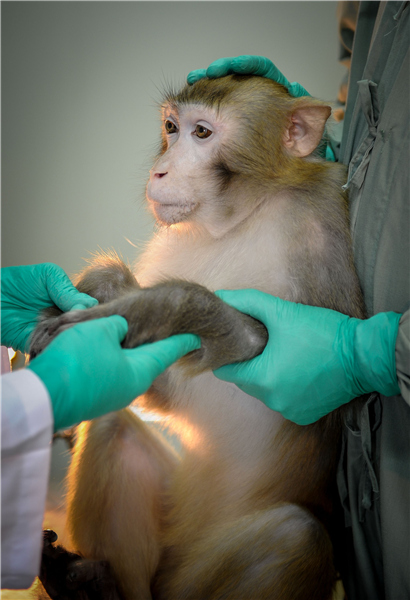 |
|
A monkey is used to test a vaccine for HIV/AIDS at the Guangzhou Institutes of Biomedicine and Health. FENG YONGBIN/CHINA DAILY/LIU DAWEI/XINHUA |
Jing Haijiang, who raises mice at the institute, said some are imported from, or donated by, other countries, such as the United States, while others are purchased from accredited breeding companies.
"The price of the mice varies greatly depending on their strain," he said. "Some, with rare characteristics, can cost as much as 200,000 yuan ($30,000) each."
Qu said that when an experiment is completed, all the animals are humanely destroyed. For example, mice are anaesthetized before being painlessly killed with carbon dioxide. Their bodies are stored in a large fridge before being transported and disposed of by certified companies, she said.
Huang, director of the Biological Resource Center, said the animals deserve respect. "We should treat laboratory animals well because they are being sacrificed for the well-being of human beings."
Sun, from CALAS, said animal protection is closely linked to a nation's general development and the education of its people. Simply relying on laws and regulations will not be enough to ensure the welfare of laboratory animals.
"They are totally defenseless in front of man," he said. "However, a normal person with a shred of decency would never abuse them."
Contact the writer at wangxiaodong@chinadaily.com.cn
